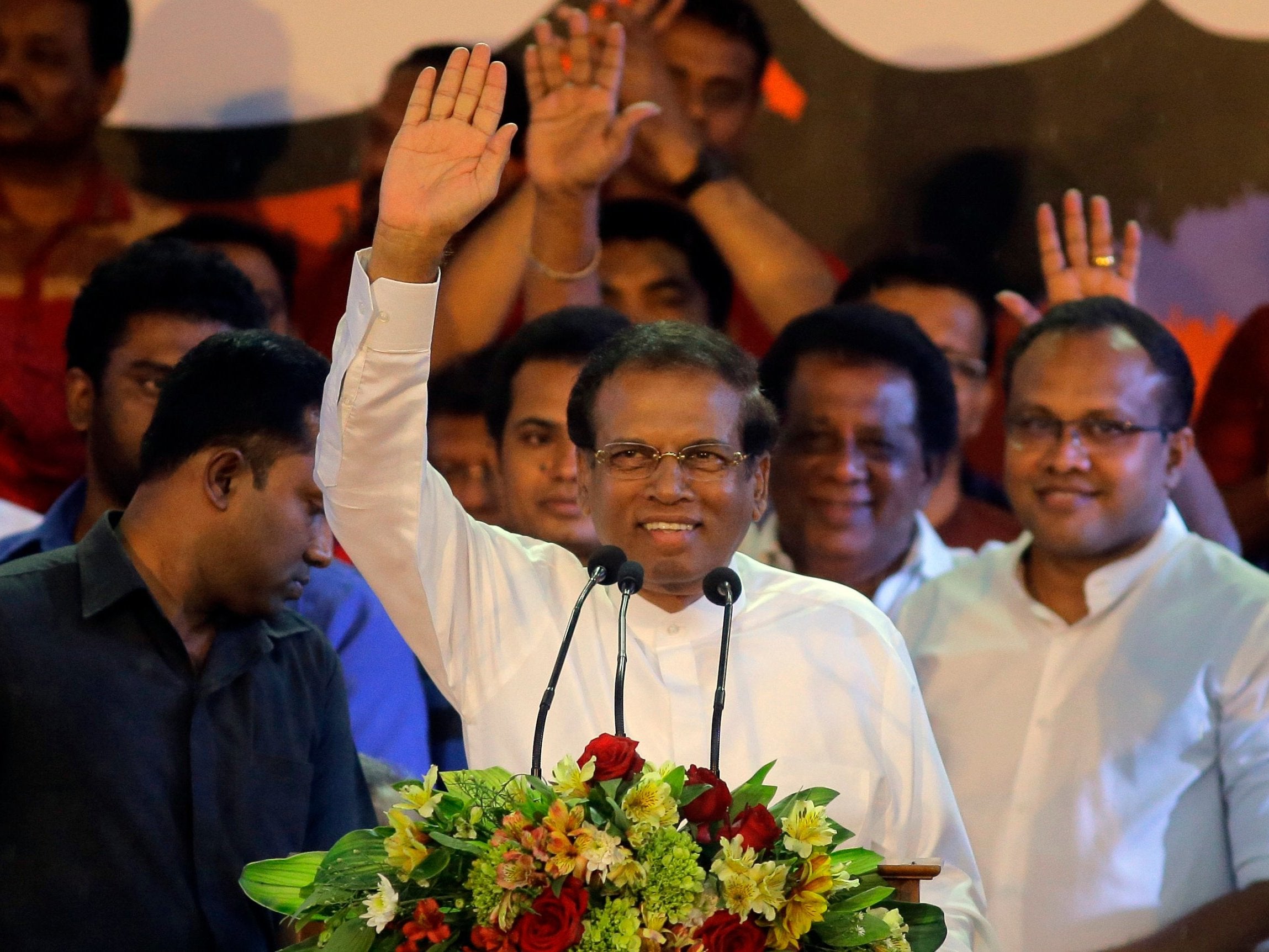Sri Lanka president dissolves parliament and calls new elections
Political crisis rolls on as Maithripala Sirisena's opponents denounce 'unconstitutional' moves

Your support helps us to tell the story
From reproductive rights to climate change to Big Tech, The Independent is on the ground when the story is developing. Whether it's investigating the financials of Elon Musk's pro-Trump PAC or producing our latest documentary, 'The A Word', which shines a light on the American women fighting for reproductive rights, we know how important it is to parse out the facts from the messaging.
At such a critical moment in US history, we need reporters on the ground. Your donation allows us to keep sending journalists to speak to both sides of the story.
The Independent is trusted by Americans across the entire political spectrum. And unlike many other quality news outlets, we choose not to lock Americans out of our reporting and analysis with paywalls. We believe quality journalism should be available to everyone, paid for by those who can afford it.
Your support makes all the difference.Sri Lanka‘s President Maithripala Sirisena on Friday dissolved Parliament and called for fresh elections amid a deepening political crisis.
An official notification signed by Mr Sirisena announced the dissolution of parliament effective at midnight Friday.
The notice said the names of candidates for new elections will be called before 26 November, and the election will be held on 5 January. The new parliament is to be convened on 17 January.
Sri Lanka has been in a political crisis since 26 October, when Mr Sirisena fired his prime minister, Ranil Wickremesinghe, and replaced him with former strongman Mahinda Rajapaksa.
Mr Wickremesinghe has insisted his firing is unconstitutional. He has refused to vacate his official residence and demanded that parliament be summoned immediately to prove he had support among its members.
Mr Sirisena had suspended parliament for two weeks in a move Mr Wickremesinghe’s backers said was designed to buy time to shore up support.
There were calls both locally and internationally to convene Parliament to end the impasse.
Amid the pressure, Mr Sirisena announced parliament would be summoned on 14 November. He maintained his choice for prime minister, Mahinda Rajapaksa, had a majority in parliament. However, the decision to dissolve parliament shows that is not so, observers say.
“The dissolution clearly indicates that Mr Sirisena has grossly misjudged and miscalculated the support that he might or could secure to demonstrate support in the parliament,” said Bharath Gopalaswamy, director at New Delhi-based analyst group Atlantic Council’s South Asia Centre.
“At the end of the day, he is a victim of his own homegrown crisis.”
Mr Wickremesinghe’s camp is likely to contest Mr Sirisena’s move because of constitutional provisions stating a parliament cannot be dissolved until four and a half years after its inception. The current parliament was elected in August 2015.
“It’s totally unconstitutional,” said Harsha de Silva, a member of Mr Wickremesinghe’s United National Party and a former minister.
“Mr Sirisena has relegated the constitution to toilet paper. We will fight this dictator to the end.”
The party said in a Twitter message that it will meet the elections commissioner to discuss the constitutionality of Mr Sirisena’s move.
The US State Department said on its Twitter page that it is deeply concerned by news the Sri Lanka parliament will be dissolved, “further deepening the political crisis”.
“As a committed partner of Sri Lanka, we believe democratic institutions and processes need to be respected to ensure stability and prosperity.”
Earlier, US congressman Eliot Engel, the top-ranking Democrat on the House Foreign Affairs Committee, and two other lawmakers wrote to the Sri Lankan president warning that actions circumventing the democratic process could impact US assistance – including a planned five-year aid package from the Millennium Challenge Corporation worth hundreds of millions of dollars.
“We fear that recent actions, if not corrected, will threaten your country’s democratic development and derail the progress made in recent years,” the three lawmakers said in a letter.
Mr Rajapaksa indicated what was coming hours before the dissolution in a speech. He said the government must go to the people for confirmation on whether the president made the correct decision when he appointed him as prime minister.
Join our commenting forum
Join thought-provoking conversations, follow other Independent readers and see their replies
Comments